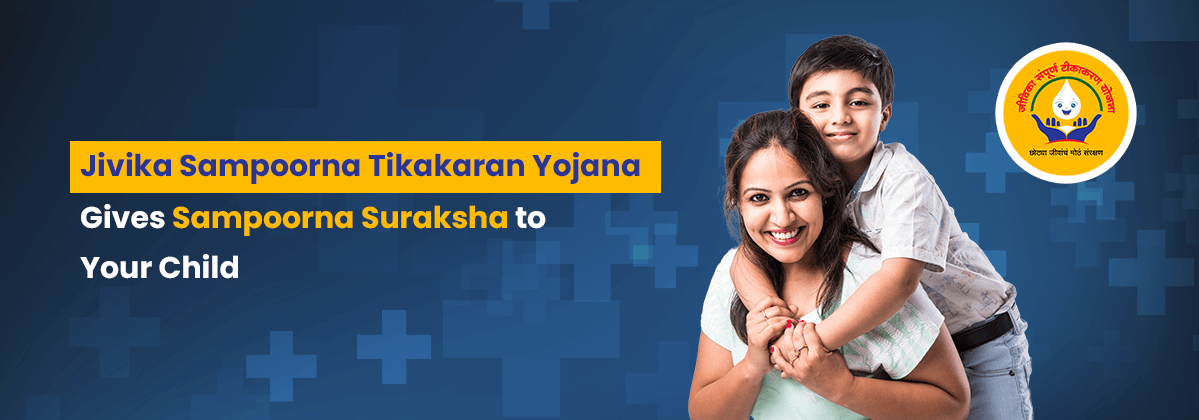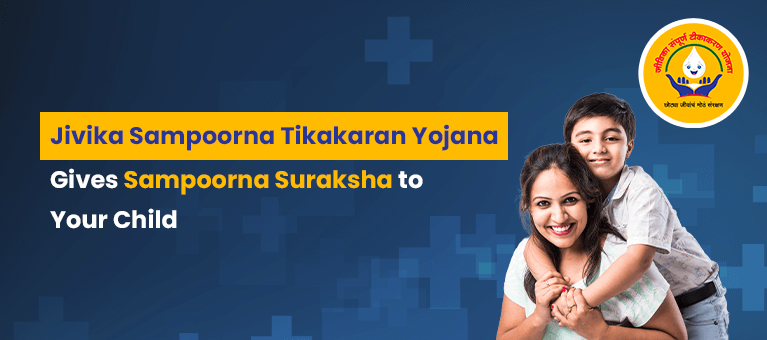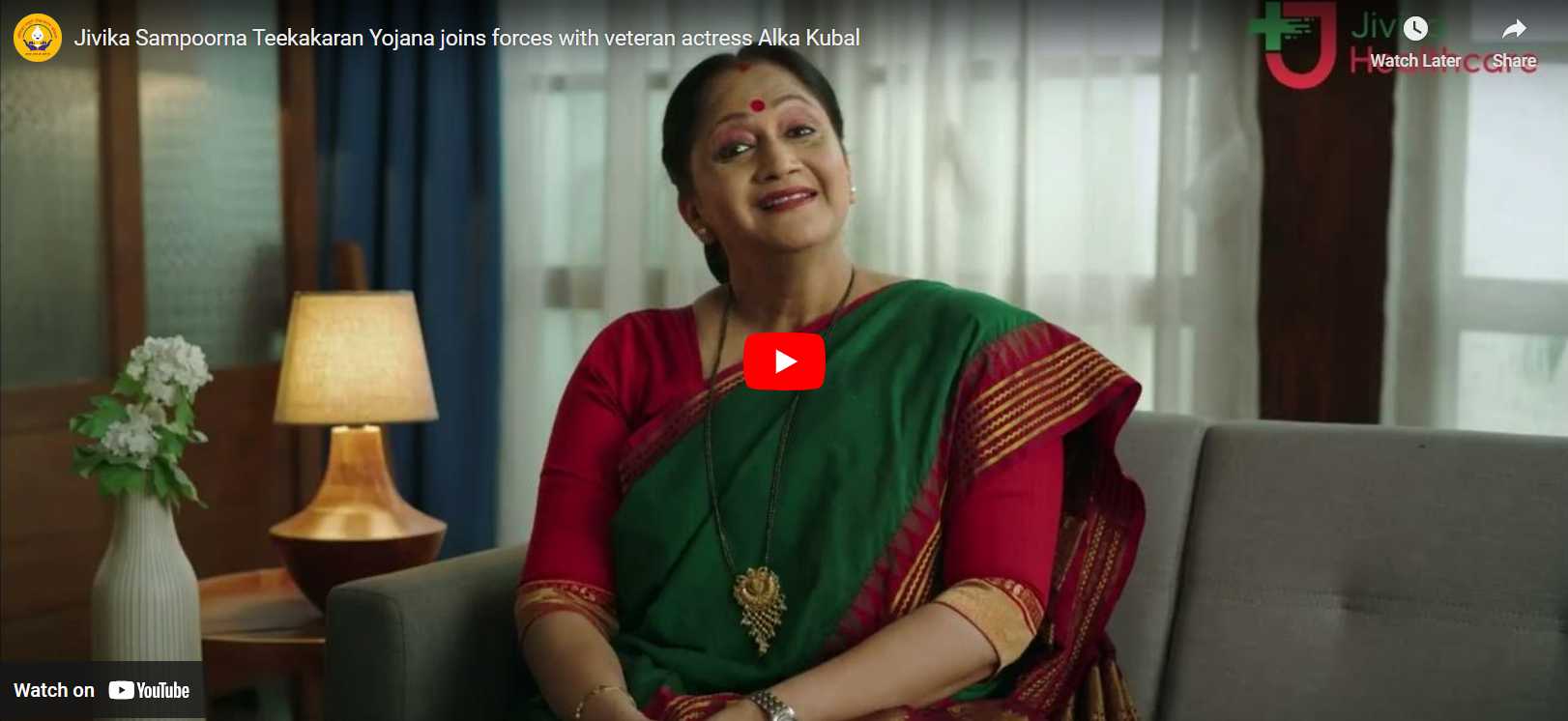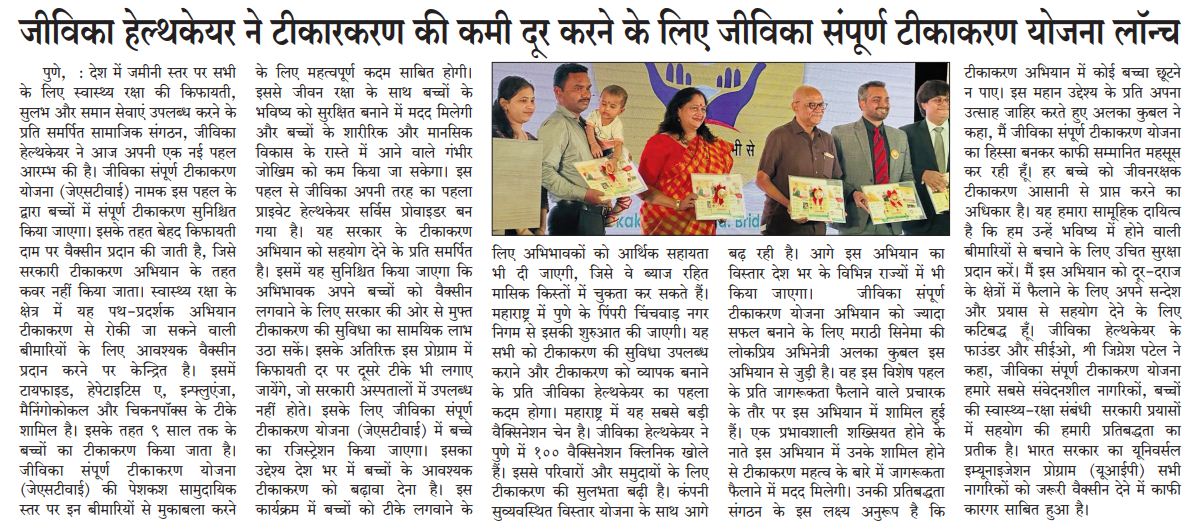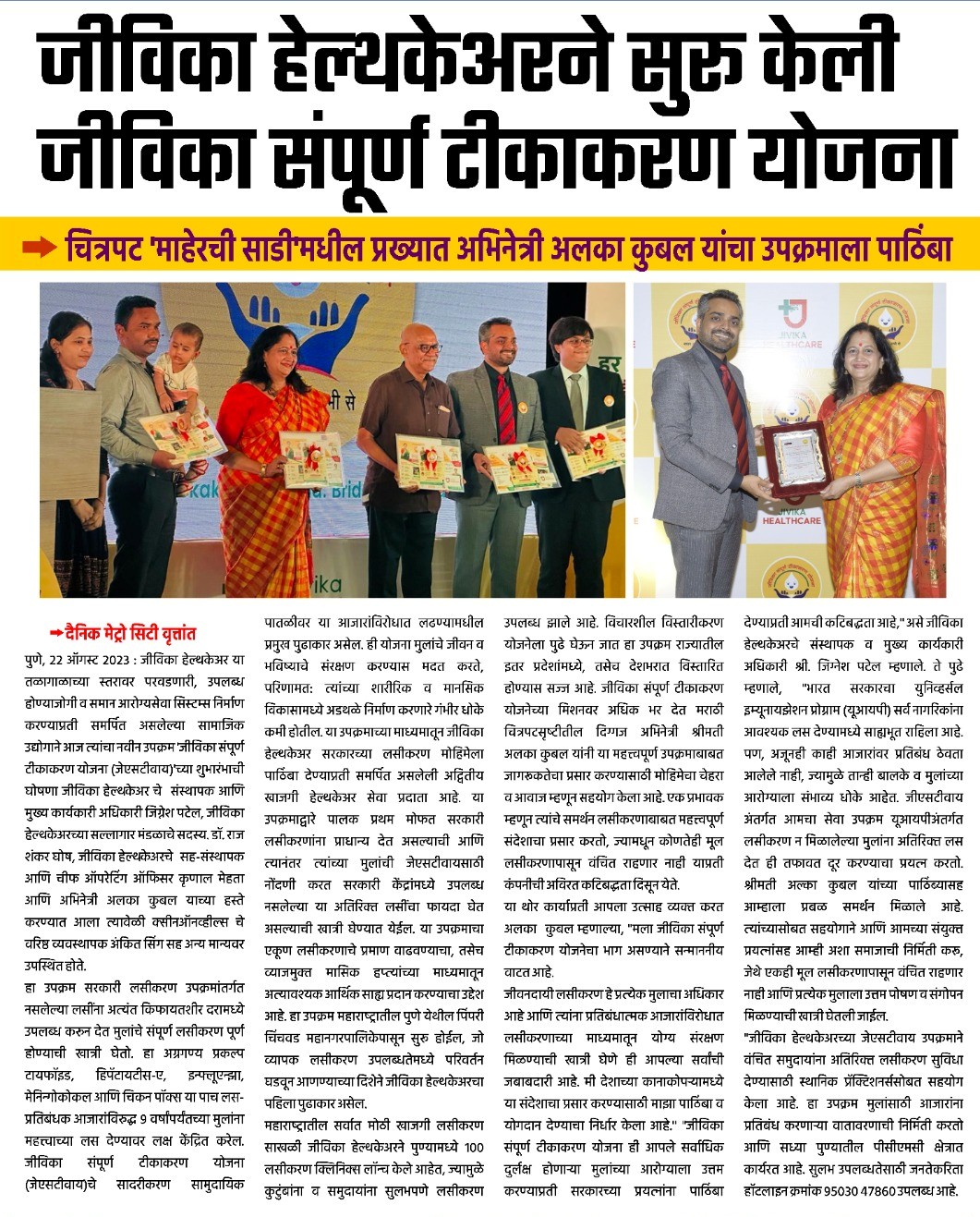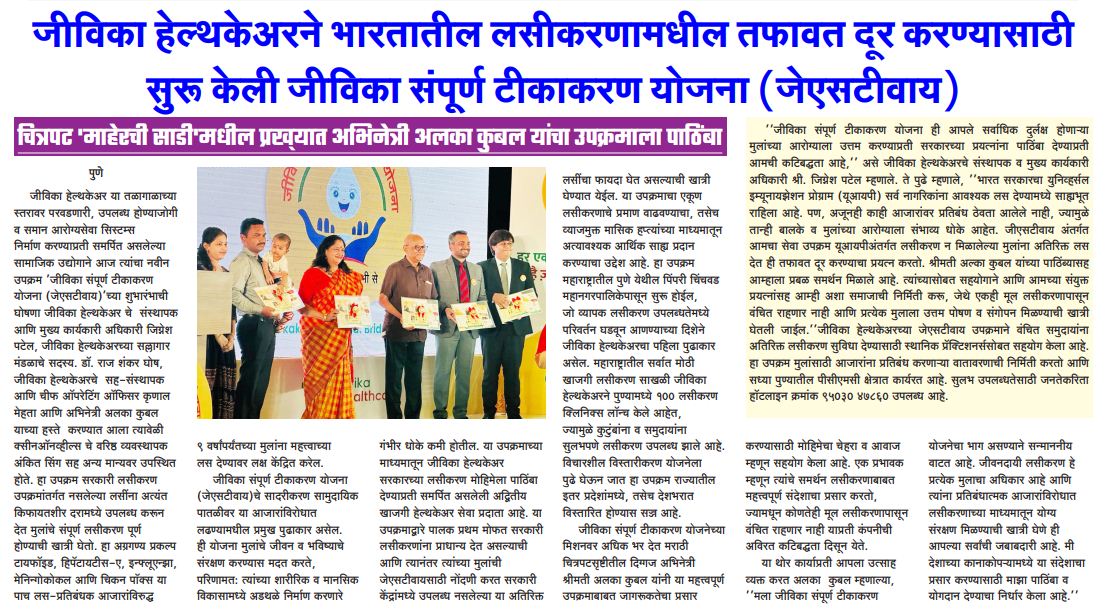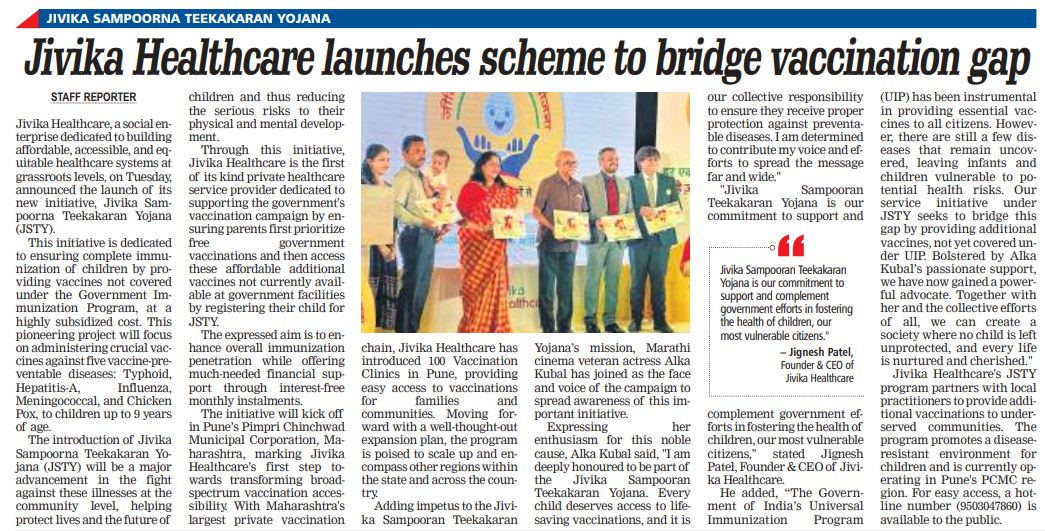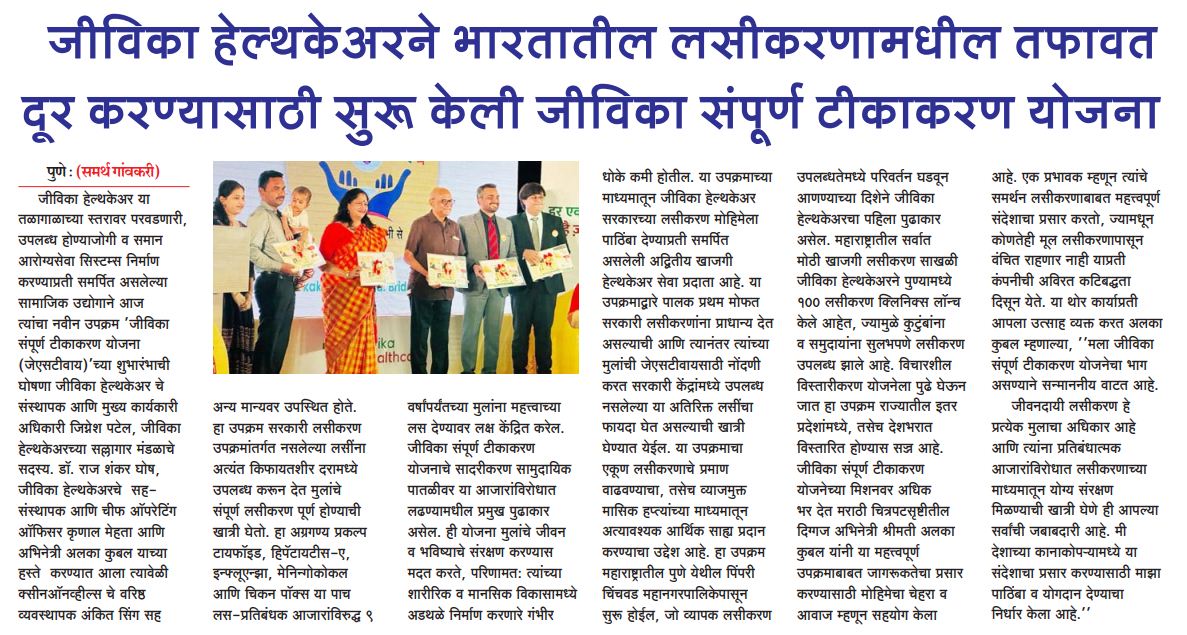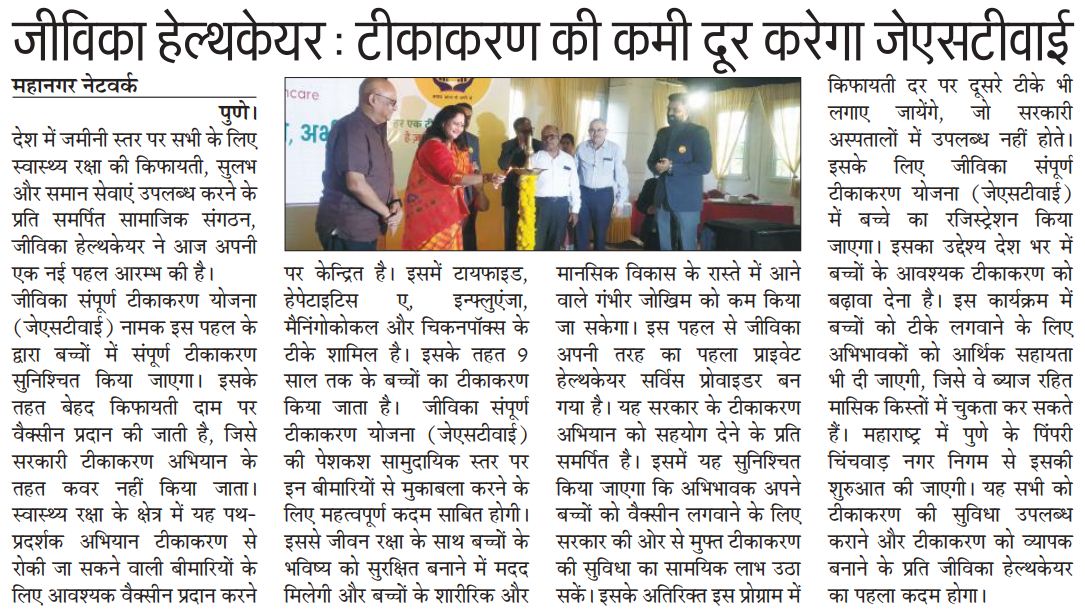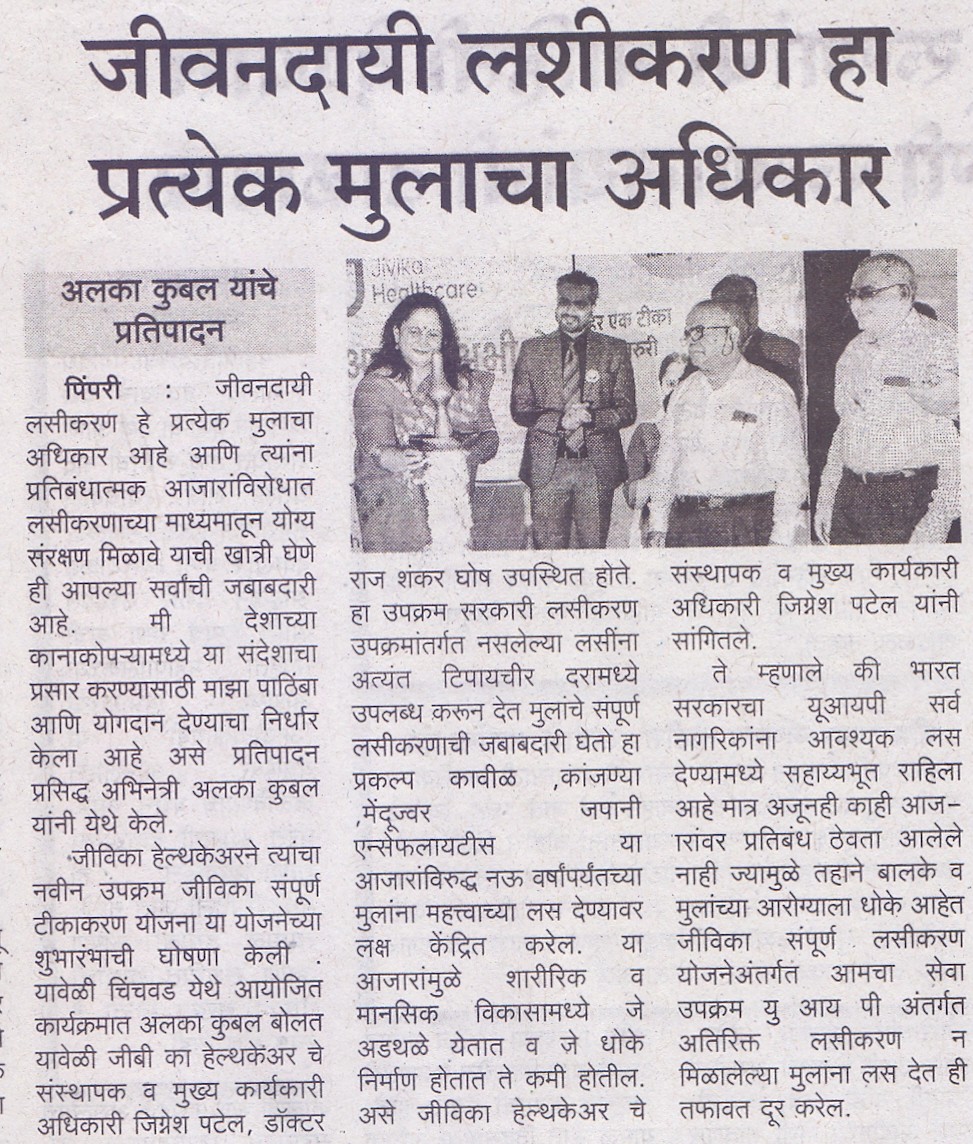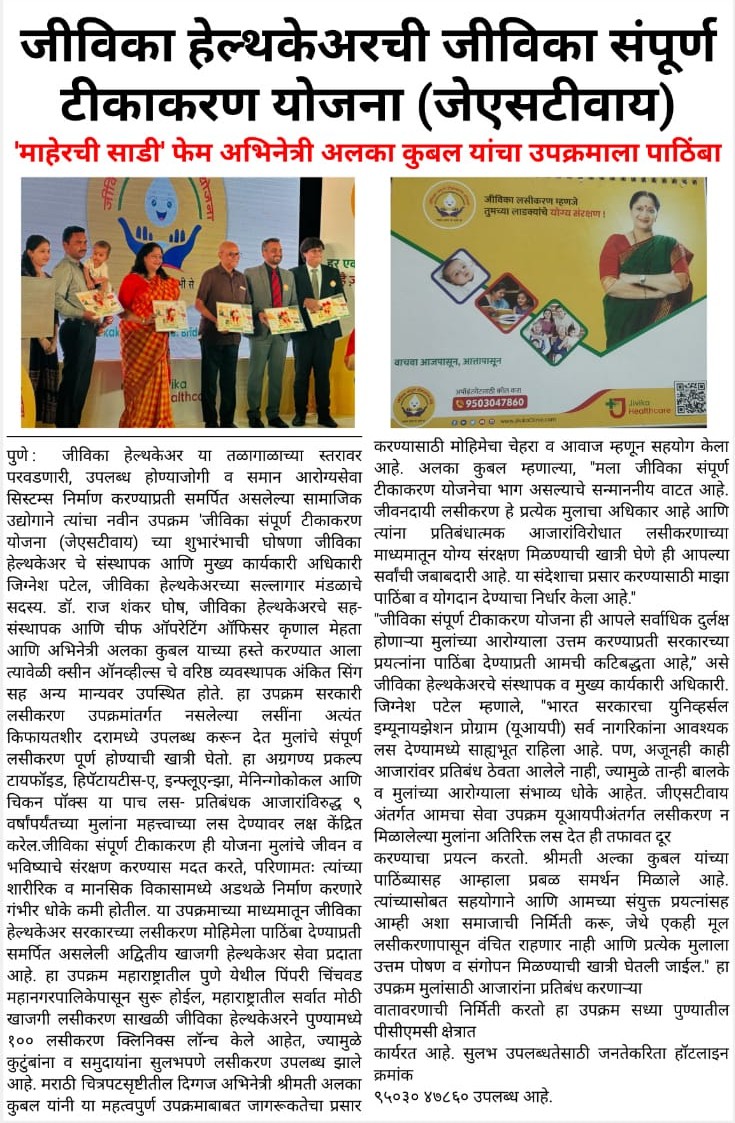Jivika Sampoorna Tikakaran Yojana
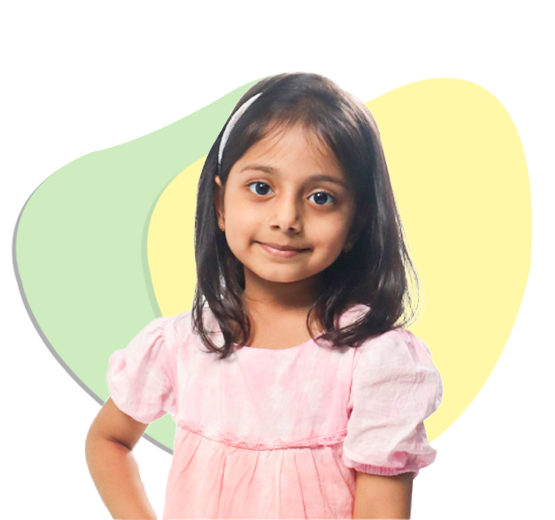
Introducing India’s 1st Subsidized EMI Based Vaccination Service
For The Vaccines Not Covered by Govt
Jivika Sampoorna Tikakaran Yojana
Jivika Sampoorna Teekakaran Yojana (JSTY) – your partner in safeguarding your child’s well-being. Parenthood is a journey filled with decisions, all aimed at ensuring your child’s safety and future. Yet, some threats aren’t always visible.
JSTY bridges this gap by providing vaccines not covered under the Government Immunization Program, and at significantly reduced costs. Our mission is clear: to shield your child (up to 9 years old) from five critical vaccine-preventable diseases – Typhoid, Hepatitis-A, Influenza, Meningococcal, and Chicken Pox. These vaccines, endorsed by WHO and IAP, complete your child’s immune protection, building a strong defense against potential health risks.
Our commitment lies in securing lives and future potentials. As a pioneering private healthcare provider, we encourage parents to prioritize government vaccinations while offering access to these additional vaccines through JSTY registration. Our goal is twofold – enhancing immunization coverage and lightening the financial load through interest-free monthly installments.
At Jivika Sampoorna Teekakaran Yojana, we empower parents with affordable immunization choices, nurturing a healthier generation and paving the way for a brighter tomorrow.
Why Should I Vaccinate My Child?
Prevention First:
Vaccines are highly effective at preventing a wide range of serious and potentially
life-threatening diseases.
Long-Term Health Benefits:
By vaccinating, you reduce the risk of severe complications and ensure a healthier future for your child, free from preventable diseases
Reduced Healthcare Costs:
Preventing vaccine-preventable diseases reduces the need for costly medical treatments, hospitalizations, and long-term care.
Community Immunity :
Vaccinating not only shields your child but also helps build community immunity, curbing the spread of diseases and safeguarding vulnerable individuals.
Social Responsibility:
Choosing vaccination reflects responsible citizenship, as you contribute to the safeguarding of vulnerable populations like newborns and the elderly.
Scientifically Proven:
Vaccination is one of the most successful public health interventions in history, responsible for saving countless lives.
Safe and Tested:
Extensive research and clinical trials ensure that vaccines are both effective and safe for children. The potential risks of vaccines are far outweighed by the risks posed by the diseases they prevent.


Har Ek Teeka Hai Zaroori
Be Wise, Immunize!
Your Child needs to be protected from life threatening diseases through timely vacination
Know About The Diseases We Cover
It is a bacterial infection by Neisseria meningitides. It is an infection of the brain and spinal cord and blood also. The infection can cause death or lifelong disability.
Symptoms:
High-grade fever, headache, neck stiffness, confusion, nausea, sensitivity to light, vomiting
Spread by:
Secretions (saliva or spit) from the nose and throat, close contact, sharing a cigarette, lipstick.
Prevention: By vaccine
Dose: above 2 years -1 dose
Hepatitis A is a liver disease caused by the Hepatitis A virus.
Symptoms:
Fever, feeling tired, upset stomach, not feeling hungry, dark urination, pain in the abdomen.
Spread by:
Contaminated food or water, contact with someone who is infected.
Prevention: By vaccine
Dose: 2 doses.
It is a highly contagious viral infection caused by Varicella Zoster. It can be serious and can lead to complications
Symptoms:
Blisters like rash, itching, tiredness and fever
Spread by:
Coughing, sneezing, salivation, skin-to-skin contact, mother-to-baby
Prevention: By Vaccine.
Dose: 2 Doses.
Typhoid fever is a bacterial infection caused by Salmonella typhi. Without prompt treatment, it can cause serious complications and can be fatal.
Symptoms:
Fever, headache, weakness sweating, body ache, loss of appetite, stomach pain
Spread by: Through contaminated food and water.
Prevention: By vaccine
Dose: TCV –single dose.
Influenza is a viral infection that can be deadly, especially at high risk.e.g.children,old age, pregnancy.
Symptoms:
Fever, chills, runny nose, cough, headache, fatigue.
Spread by:
Sneezing, coughing, touching contaminated surfaces.
Dose:
Babies and children ( 6 months to 9 years of age) who have never had a flu shot will need two doses of vaccination 4 weeks apart. After that every year one dose.
A new version of the vaccine is developed twice a year as the influenza virus rapidly changes.
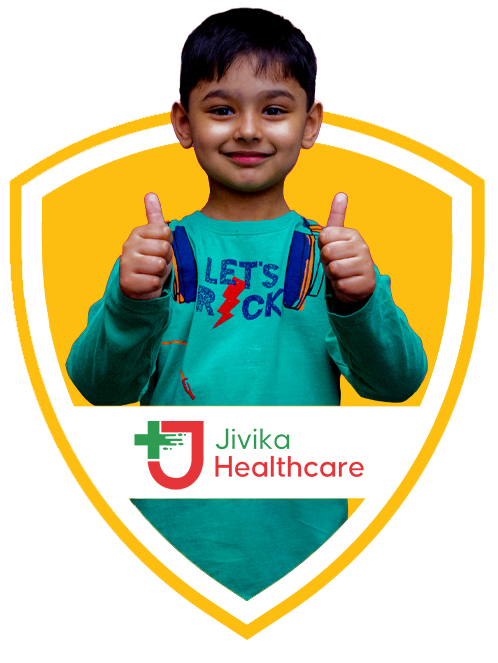

+
Million Patient
+
Medical Camps
+
Towns Reached
+
Corporate Partners
Why Choose Us
- Nationwide Reach: Jivika Healthcare extends its PAN India presence, ensuring no geographical barrier hinders the well-being of employees across the country.
- Integrated Service Provision: With us, organizations gain the advantage of multiple health services from a single provider
- On-Premise Services – Doctor based Mobile Healthcare Services on your premises.
Who is Our Focus?
- Children aged 0 - 9 years.
- Children who haven't received all the WHO and IAP recommended vaccinations.
- Children who have missed their age-specific doses but are keen to catch up by receiving the necessary jabs.


